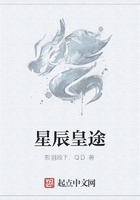It happened at one time the brilliant, poetical, and mercurial Earl of Rochester extended his favour and friendship towards Dryden, gratified by which, the poet had, after the manner of those days, dedicated a play to him, "Marriage a la Mode." This favour his lordship received with graciousness, and no doubt repaid with liberality. After a while, Dryden, led by choice or interest, sought a new patron in the person of the Earl of Mulgrave. For this nobleman Rochester had long entertained a bitter animosity, which had arisen from rivalry, and had been intensified from the fact that Rochester, refusing to fight him, had been branded as a coward. Not daring to attack the peer, Rochester resolved to avenge himself upon the poet. In order to effect his humiliation, the earl at once bestowed his favour on Elkanah Settle, a playwright and poet of mean abilities. He had originally been master of a puppet-show, had written verses to order for city pageants, and produced a tragedy in heroic verse, entitled "Cambyses, King of Persia."His patron being at this time in favour with the king, introduced Settle to the notice of the court, and induced the courtiers to play his second tragedy, "The Empress of Morocco," at Whitehall, before their majesties. This honour, which Dryden, though poet laureate, had never received, gave Elkanah Settle unmerited notoriety; the benefit of which was apparent by the applause his tragedy received when subsequently produced at the Duke's Theatre in Dorset Gardens. Nor did the honour and profit which "The Empress of Morocco" brought him end here; it was published by William Cademan, and had the distinction of being the first English play ever illustrated, or sold for the price of two shillings. It was scarce to be expected, in an age when men ventilated their merest grievances by the publication of pamphlets, Dryden could refrain from pointing out to the public the mistake into which they had fallen by honouring this man.
Nor was he singular in his feelings of animosity. The poets Shadwell and Crowne, believing themselves ignored and neglected, whilst their rival was enriched and exalted, joined Dryden in writing a merciless criticism upon Settle's tragedy. This was entitled "The Empress of Morocco, or some few erratas to be printed instead of the sculptures [Illustrations.], with the second edition of the play." In this Settle was described as "an animal of a most deplored intellect, without reading and understanding;" whilst his play was characterized as "a tale told by an idiot, full of noise and fury signifying nothing." To these remarks and others of like quality, Settle replied in the same strain, so that the quarrel diverted the town and even disturbed the quiet of the universities. Time did ample justice to both men; lowering Settle to play the part of a dragon in a booth at Bartholomew Fair, and consecrating Dryden to immortality.
Before the clamour resulting from this dispute had ended, Rochester, fickle and eccentric, grew weary of his PROTEGE and consequently abandoned him. He had not, however, tired of humiliating the laureate, and to mortify him the more, introduced a new poet at court, This was John Crowne, a man then little known to the town, and now best remembered as author of "Sir Courtly Nice," a comedy of wit and entertainment. So well did he succeed in obtaining favour at court, through Rochester's influence, that the queen ordered him to write a masque. This command he immediately obeyed, producing "Calisto, or the Chaste Nymph," which was acted at Whitehall by the Duke of York's fair daughters, the Princesses Mary and Anne, together with many gracious ladies and noble lords. Dryden, probably the better to hide the mortification he felt at seeing his office as laureate unceremoniously usurped, offered to write an epilogue for the occasion; but this service was, through Rochester's interference, rejected. The masque proved a brilliant success; "the dancing, singing, and music, which were all in the highest perfection, and the graceful action, incomparable beauty, and splendid habits of those ladies who accompanied them, afforded the spectators extraordinary delight." "Calisto" was therefore performed thirty times.
The author's gratitude for his lordship's patronage was only equalled by his disappointment upon its hasty withdrawal.
Growing weary of him, Rochester found a more worthy object for his favour in Thomas Otway, a poet rich in all the miseries which afflicted genius in those days. Son of the rector of Woolbeding, pupil at Winchester School, and commoner of Christchurch, Cambridge, he had on his arrival in town vainly sought employment as an actor, and barely earned bread as a play-writer. Before he became a PROTEGE of my Lord Rochester he had written "Alcibiades," a tragedy, he being then, in 1665, in his twenty-fifth year. His next play was "Don Carlos, Prince of Spain,"which, through the earl's influence, gained great success. In the preface to this tragedy he acknowledges his unspeakable obligations to my lord, who he says made it his business to establish "Don Carlos" in the good opinion of the king and of his royal highness the Duke of York. Unwarned by the fate of his predecessors, and heedless of the fickleness of his patron, he basked in hope in the present, mercifully unconscious of the cruel death by starvation which awaited him in the future. Alas!
Rochester not only forsook him, but loaded him with satire in a poem entitled "Session of the Poets."In verses which he wrote soon after, entitled "An Allusion to the Tenth Satire," Rochester likewise attacked Dryden; who, in the preface of his "All for Love," replied in like manner. Then there appeared an "Essay on Satire," which ridiculed the king, dealt severely with his mistresses, said uncivil things of the courtiers in general, and of my Lord Rochester in particular.















